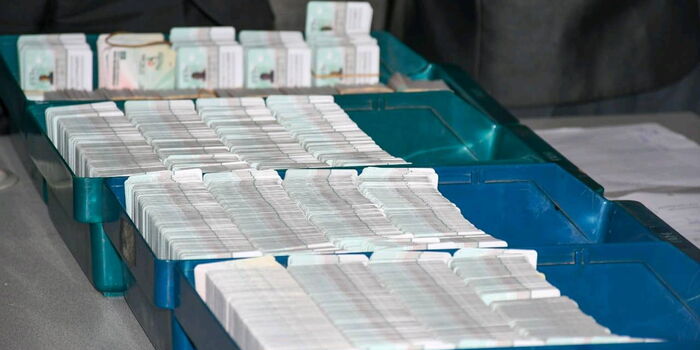Kenyans in Marginalized Counties to Receive IDs Within Three Days
Interior Cabinet Secretary Kipchumba Murkomen has announced that the government is rolling out a new initiative aimed at speeding up the registration and issuance of national identity cards in marginalized communities.
Speaking on Thursday, June 16, Murkomen revealed that the Ministry of Interior is introducing special machines designed to make the ID registration process faster and more efficient in remote areas.
These machines, known as Mobile Live Capture Units, are battery-powered and portable. They work by electronically capturing an individual’s biometric and personal data, which is then sent directly to the central system for processing.
With this technology, residents in selected counties will be able to receive their ID cards within just three days after registration.
Counties set to benefit from this project include Turkana, Garissa, Mandera, Kilifi, Wajir, Taita Taveta, Marsabit, Isiolo, Samburu, Lamu, West Pokot, Tana River, Narok, and Kwale.
These regions have historically faced challenges such as poor infrastructure, insecurity, and long distances to registration centers, making it difficult for residents to obtain IDs.
The Mobile Live Capture Unit machines are currently being tested in Turkana County, where it is estimated that over 400,000 adults above the age of 18 still do not have national ID cards. Murkomen emphasized that once the pilot program in Turkana is successfully completed, the machines will be rolled out to other counties facing similar challenges.
“I recently supervised the pilot phase of the Mobile Live Capture Unit, which is a compact, battery-operated machine designed to collect ID applicant information and transmit it electronically for processing,” Murkomen stated. “After the trial period, these devices will be deployed to other marginalized counties.”
He further explained that many pastoralist communities across the country face significant obstacles when trying to access essential services due to the lack of national identification. In Turkana alone, hundreds of thousands of adults are yet to receive IDs.
The new system, he said, is designed to bridge this gap and ensure that those registered through it will have their IDs in just three days.
In Kenya, a national identity card is crucial for confirming one’s citizenship and is required to access government services, employment, financial services, and more. Without an ID, many citizens remain locked out of vital opportunities.
Meanwhile, in a separate initiative aimed at improving access to local government services, Mombasa County is planning to introduce a special identity card for its residents. Known as the Mombasa Resident’s Card, the new local ID will enable people to benefit from reduced rates for services such as healthcare and education.
During a public forum held on Thursday, July 10, Mombasa Governor Abdulswamad Sheriff Nassir said the county government would only proceed with the distribution of the cards after seeking and receiving approval through public participation.
He explained that the proposed card would include biometric information, as well as other personal details such as place of birth and current residence.
“Each year, the county spends over KES 130 million on hospital fee waivers to ensure that no resident is left behind,” the governor noted. “To make this support more efficient and targeted, we are proposing the Mombasa Resident’s Card — a tool that will offer residents discounted rates for accessing county-run services.”
Both initiatives — the national government’s ID distribution drive and the county government’s local resident card — are part of broader efforts to make identification and access to services more inclusive and efficient across the country.
Join Gen Z & Millennials New WhatsApp Channel To Stay Updated On time
https://whatsapp.com/channel/0029VaWT5gSGufImU8R0DO30


